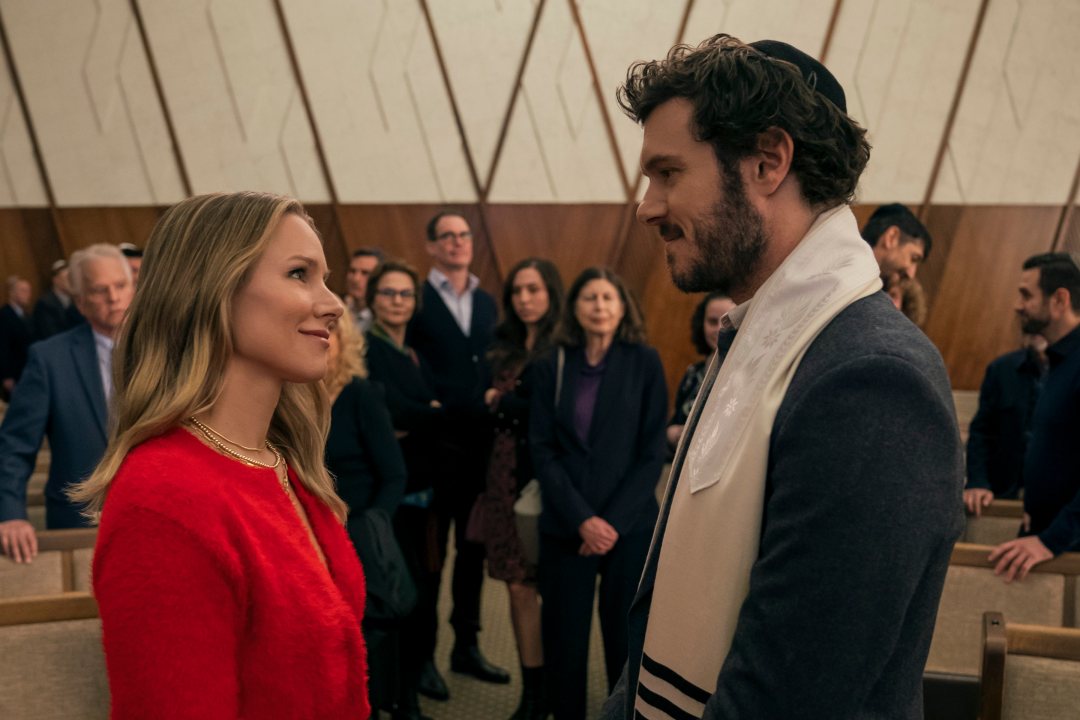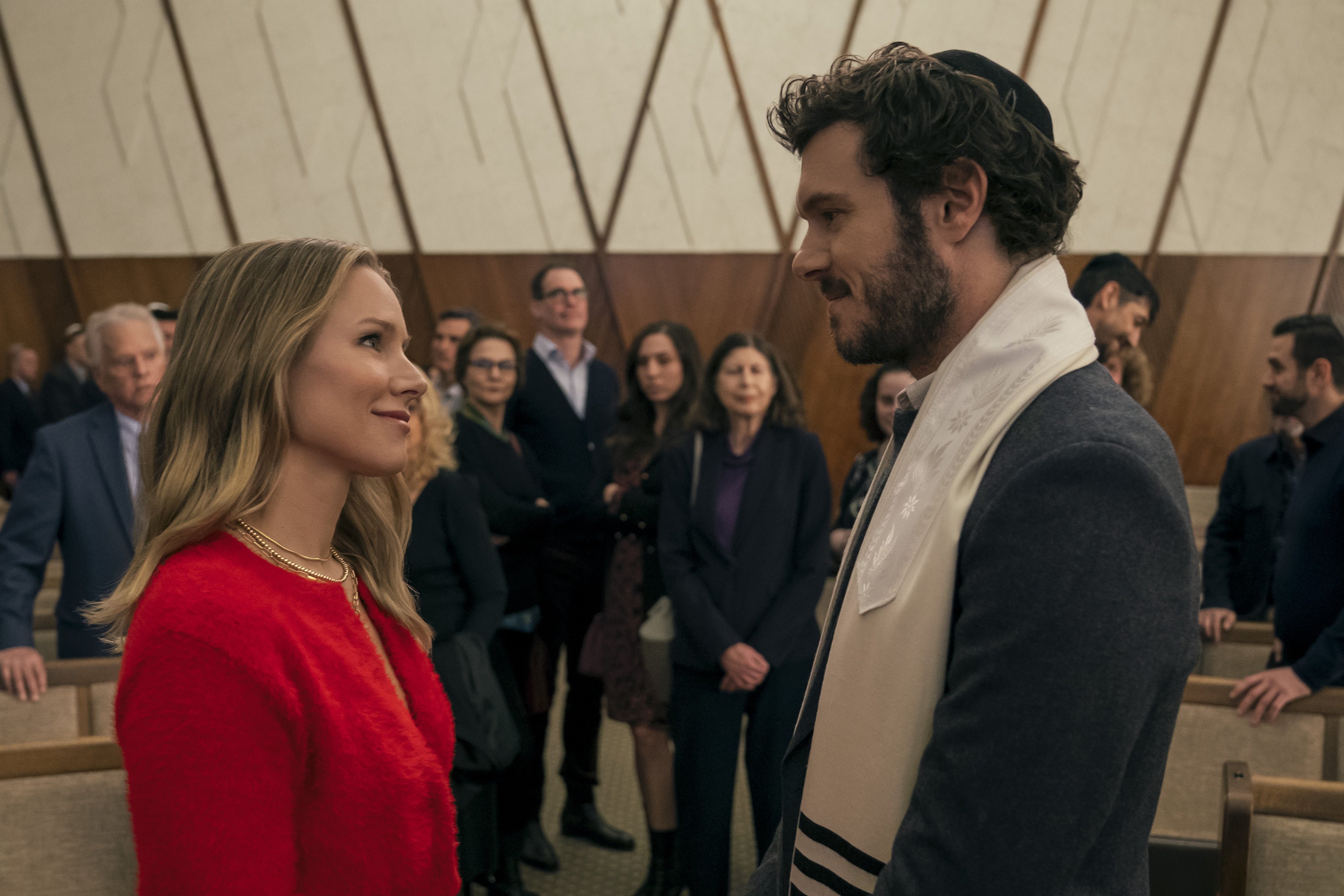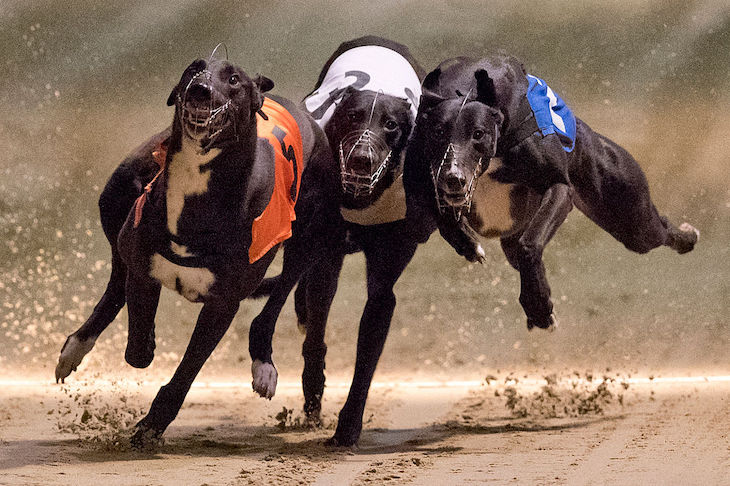Nobody Wants This, the Netflix romcom that brought us the ‘hot rabbi’, recently returned for its second season. For the uninitiated, the first series introduced us to sex and relationships podcaster Joanne, played by Kristen Bell, who meets Noah, played by Adam Brody (of The O.C. millennial crush fame), a reform rabbi who has just broken up with his long-term girlfriend. The premise felt fresh and original: a romcom that dared talk about religion and even made it the key part of the plot.
It’s undoubtedly a hit, with season two racking up more than eight million views in its first four days of streaming, taking it to the number one spot on Netflix’s chart. But for me, the show has failed to live up its early promise – and is starting to look like a missed opportunity for Jewish comedy.
In the first season, we witnessed crackling on-screen chemistry as Joanne and Noah made an initial weak attempt to fight against their obvious mutual attraction, and some humorous culture clashes as each learned about the other’s world. Highlights included Joanne turning up at Noah’s synagogue in a bright red midriff-revealing outfit and crossing herself, mistakenly believing that it was a Jewish thing to do (Noah: ‘That’s not us’); and Noah accompanying Joanne to pick up a sex toy for her podcast, only to bump into congregants while wearing a spiky dog collar with a device called ‘The Obliterator’ under his arm. Without giving too much away, by the end of the series the question of whether or not Joanne could see herself converting to Judaism has become a central issue.
Season two picks up with Joanne and Noah seemingly settling into a more serious relationship – but Joanne believes they have agreed to ‘do the whole interfaith thing’, while Noah thinks they have just been giving Joanne more time to find her Jewish connection. And yet despite Judaism being such a cornerstone of the plot, it feels like the Jewishness of the show has gone missing.
Joanne claims she is still interested in finding that Jewish spark, but she barely asks any questions about Judaism, and when she attends a baby naming ceremony with Noah, she makes it all about her. Admittedly, this is in keeping with her character – but surely it would also be in keeping with her character to at least, say, want to find out which celebrities are Jewish. (She would only need to watch Adam Sandler’s excellent ‘Chanukah Song’, in which he reels off a list of famous Jews: ‘Paul Newman’s half Jewish, and Goldie Hawn’s half too. Put them together: what a fine-looking Jew.’)
Meanwhile, Noah makes a few impassioned speeches about what his religion means to him – but honestly, outside of his scenes in the synagogue, there isn’t anything particularly Jewish about him. In fact, the most Jewish thing about the entire second season is when Seth Rogen makes a cameo as a progressive rabbi. We don’t see any Jewish rituals at home with Noah: no lighting shabbat candles or blessing wine and challah – not even any Jewish pastries on the table. And where is the Yiddish? Surely an Ashkenazi rabbi would at the very least be peppering his speech with some choice Yiddish words. Even when my young son goes to stay with my parents, he comes home with a new Yiddish expression – lately calling his sister a ‘lobbus’ (cheeky) and moaning ‘oy gevalt’ (similar to ‘oy vey’).
The writer of the show, Erin Foster, herself a convert to Judaism (the story is loosely based on her own relationship) has made the point that she doesn’t want to mention Israel or Palestine in the series as it’s not the right place for it. Fair enough, especially if you’re hoping Netflix will keep commissioning you. But she’s also neglected a wealth of Jewish quirks and foibles that are so ripe for comedy.
Seinfeld suspects his dentist of converting to Judaism ‘purely for the jokes’; when his suspicions get back to his dentist and friends, Seinfeld is accused of being ‘anti-dentite’
Not including scenarios where Joanne could discover and react to some of the frankly bizarre traditions that Judaism is filled with feels like a missed opportunity. For an insight into what it could look like, see the video of Jewish actors Mayim Bialik and Max Greenfield on The Late Late Show with James Corden acting out the blowing of the shofar – an instrument made of a ram’s horn, traditionally played in synagogue on Rosh Hashana, Jewish new year – to Corden’s bafflement.
Or I’d love to see a scene of Joanne and her sister, her podcast co-host, at a Passover seder table forced to eat the traditional unleavened bread, the cardboard-masquerading-as-food also known as matzah. Imagine these two iced-latte drinking, probably carb-avoiding shiksas attempting to stomach matzah, or possibly promoting it as a health food on their podcast, and then dealing with the subsequent matzah constipation (Seth Rogen’s in the show; toilet humour is inevitable).
Even without delving deeper into Jewish religious rituals, the cultural characteristics of Jews have been making us laugh in television shows for years. Americans do it best, and Foster should take a leaf out of the book of some of her showbiz predecessors. In Seinfeld, Jerry Seinfeld isn’t religious in the least, but his comedy is imbued with Jewishness, as is the New York it is set in. Season five’s ‘The Dinner Party’ revolves around Seinfeld and Elaine attempting to buy a chocolate babka to take to a dinner party and ending up with a cinnamon ‘lesser babka’. And in season eight’s ‘The Yada Yada’, Seinfeld suspects his dentist of converting to Judaism ‘purely for the [Jewish] jokes’; when his suspicions get back to his dentist and friends, Seinfeld is accused of being ‘anti-dentite’.
Meanwhile, the Jewishness of Grace in Will and Grace was always part of the comedy. When she hastily marries her Jewish boyfriend, Leo, in series five, her mother, played by the indomitable Debbie Reynolds, says ‘I’m not sure I approve’, to which Grace replies: ‘He’s a Jewish doctor’. Reynolds immediately coos: ‘Ooh I love him!’ This exchange will chime with many a Jewish daughter and mother.
More recently, in The Marvellous Mrs Maisel, the protagonist, Miriam ‘Midge’ Maisel, and most of the main characters are Jewish. Again, there are few scenes of actual religious observance, but the characters are quintessentially Jewish, and it is from this that much of the show’s comedy derives. In the first episode, Midge uses her homemade brisket as a bribe to win her husband a slot on an open-mic night. The parents try to matchmake for their grown-up children. And within the two central families, everyone is getting into everyone else’s business and there is constant low-level bickering. Spot on.
A third season of NWT has already been announced. I just hope the writers can reignite the Jewish spark that they had in the first place and that runs through so much American comedy. NWT is perfectly placed to bring some much-needed Jewish joy and chutzpah to our screens; and, unlike in Seinfeld, I don’t think any of us would mind if Joanne just wants to become Jewish ‘for the jokes’.








Comments